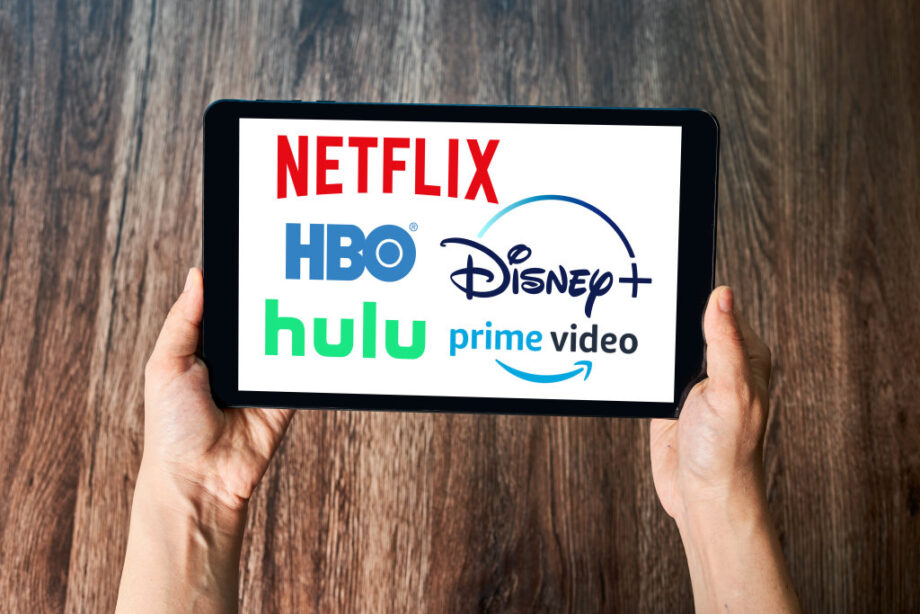From the invention of the television to the creation of streaming services, the way people consume media has exponentially changed over time. Initially, one’s choices were either to go to the theaters to see a film, or stay at home to watch a weekly television show on one of three channels. Now there is an endless amount of channels, apps, websites, and streaming services for one to choose from. Because of the variety of content from all of these sources, it brings up the question, what should be considered television, and what shouldn’t? Is there any room in between? With media sources like TikTok, Facebook Watch, and YouTube, there is definitely some gray area. However, in order to better understand what can be considered television, one must go back to the beginning.
The television emerged in the 1930’s. There was some debate as to who should be accredited for the invention, but David Sarnoff, affiliated with the RCA, was the face of the TV. By the 1950’s, most people had a television in their home. It had become a staple for middle class America. The public did initially had concerns regarding the television, as parents grew concerned their children spent too much time watching it, or that some things shown were too violent. While those concerns still haven’t disappeared to this day, their importance faded as television became a necessity. People got their news from it. Live sports were aired on it. Families organized their living rooms around it. One could not escape television even if they wanted to.

As time passed and technology advanced, the popularity of television only grew. Common small talk at work revolved around events that happened in the episode of the week. Season finales were cultural phenomenons. In the 70’s, cable TV was offered, though few people had it then. By the 1990’s, the majority of people had cable, and thus had the option of many more channels. Now that three networks did not control what was aired, shows grew more specific as their audiences narrowed. In the present day, most people have given up cable in favor of the plethora of streaming services. In addition, with the internet controlling so much of our daily lives, so many different media companies fight for our attention, including TikTok, Facebook Watch and YouTube.
Many companies are venturing into producing their own version of television after seeing the success of companies like Netflix, Hulu, etcetera. However, some are more successful than others. Quibi is a prime example of what not to do. During the weeks prior to Quibi’s launch, one could not escape the ads. They overpromoted, and had many A-list actors attached to it, but it still failed. There are several reasons for this, one of them most likely being the pandemic, but I believe Quibi failed because it did not understand what makes television successful. Quibi’s whole premise is having high quality shows but in short increments so one can watch it on their way to work, on long car rides, etcetera. I think seeing the success of streaming services in addition to the success of YouTube and TikTok made them believe that there was an audience for a platform like it. However, most people don’t want to watch an episode in eight minute increments. With the immediacy that the population has become accustomed to and binging shows by season, people want access to all the content immediately.

Quibi also missed the point that YouTube and TikTok aren’t really television, at least in my opinion. YouTube, having existed since 2007 is one of the most successful entertainment and media websites that’s out there. However, it’s not television. One way to clearly see that is the fact that YouTube tried to make its own original television shows with large creators that ultimately failed. That’s because what makes YouTube successful is the connection between the creators and the viewers. While it’s different with significantly larger creators, YouTube has a feeling of intimacy to it. The viewers feel like they know the creators. They comment on their videos and creators comment back. YouTube is much more interactive than a streaming service. Also, most YouTube videos aren’t serial and don’t have a narrative. Sometimes they have one or the other, but rarely both. So even though Youtube creators sometimes make videos over three hours long, it’s still more of a social media than a streaming service. This statement holds even more true with TikTok. While some creators even have a television-like set up, where they release videos following a continuous storyline, it’s not really television. The degree of separation one feels with shows is not there. Creators can get feedback almost immediately. Also a TikTok at most can be three minutes. I would not consider them long enough to be considered television. No story is really being told in most TikToks. So, these aren’t television, but that does not make them not successful. They just accomplish something different.
When it comes to something like Facebook Watch, the definition of television is slightly more complicated. I do believe Facebook Watch is television because even though it is on a social media site, it has that degree of separation. Now, I’ve only seen one show off of Facebook Watch, Sorry For Your Loss, but it has the feel of a television show. It’s not just a random person making content. They hire directors, actors, screenwriters, a camera crew, etcetera. It’s made to be TV. They release episodes weekly with an overarching narrative. While I do believe Facebook Watch to be television, many of the shows on there did not look appealing, and their marketing wasn’t great. However, it does not need to be good to be considered television.
In a constantly changing media landscape, it’s hard to keep up with all the content being released whether on social media or on streaming services. The definition of television is also constantly changing with it. However, I don’t believe it entirely matters if something is considered television or not. Whether something is made by a large production company with weekly episodes and an overarching narrative or a fifteen second video of someone’s cat, people still find value and entertainment in it. As someone who wants to create media to have a positive impact on others, that’s all that seems important.

